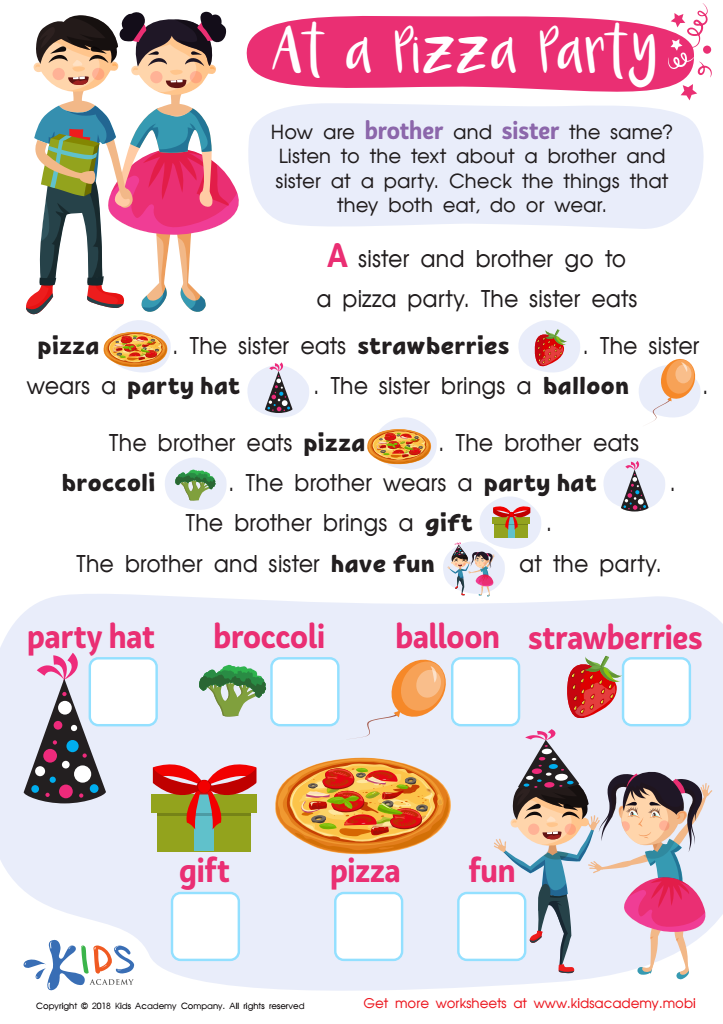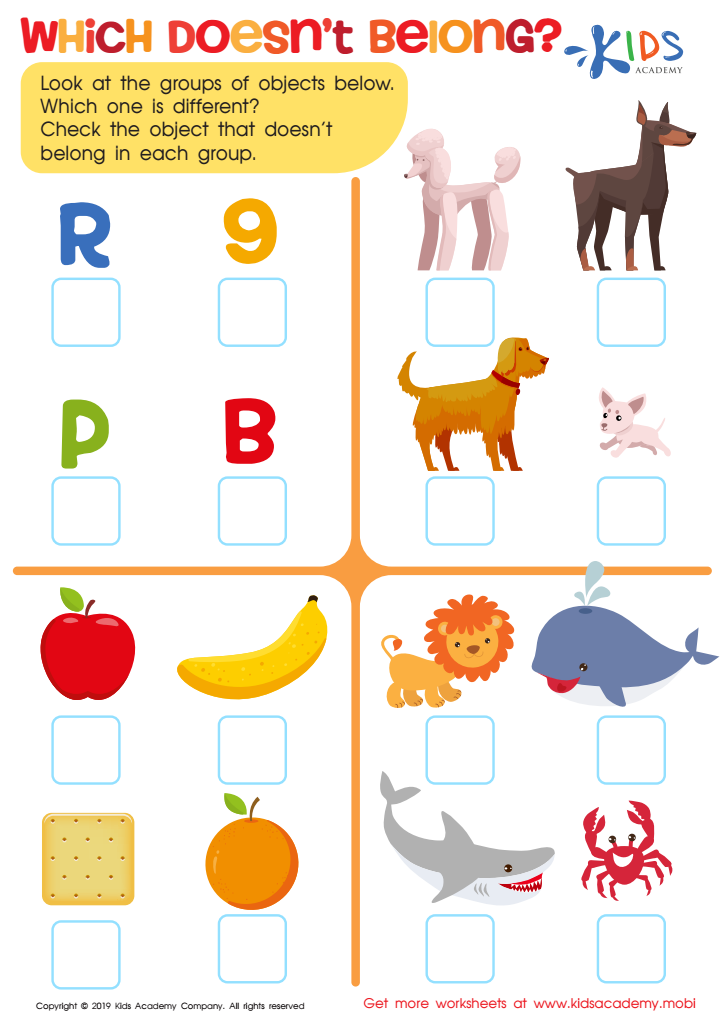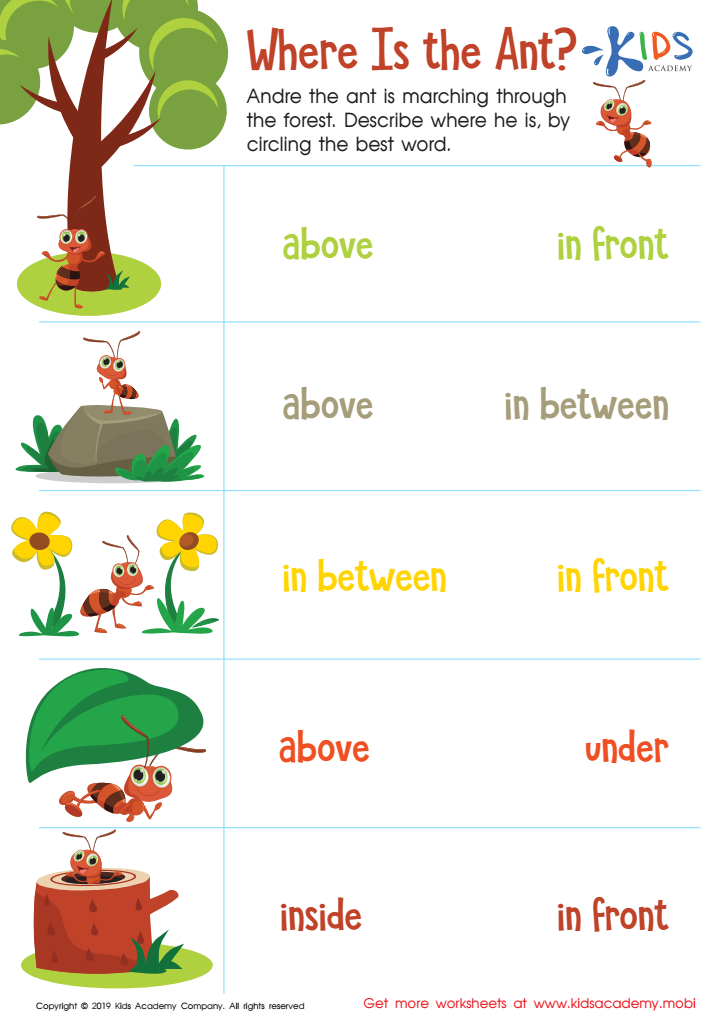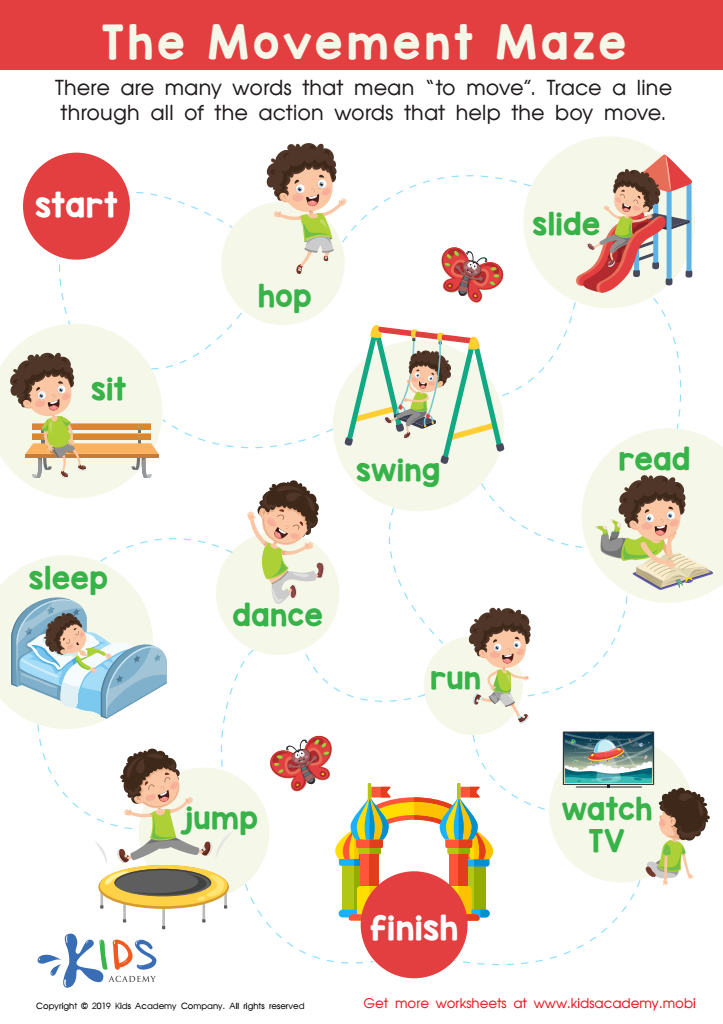Problem-Solving Skills Normal Building Vocabulary Worksheets for 4-Year-Olds
4 filtered results
-
From - To
Enhance your 4-year-old's vocabulary and problem-solving abilities with our engaging worksheets! Designed specifically for early learners, these interactive activities focus on developing essential language skills through fun and age-appropriate challenges. Children will explore new words and concepts while honing their critical thinking, decision-making, and reasoning skills. Our problem-solving skills worksheets encourage creativity and exploration in a playful manner, making learning enjoyable for young minds. Perfect for home or classroom use, these printable resources foster a love for learning and help build a strong foundation in vocabulary and problem-solving. Get started today and watch your child's skills flourish!


At a Pizza Party Worksheet


Which Doesn't Belong? Worksheet


Where Is the Ant? Worksheet


The Movement Maze Worksheet
Parents and teachers should prioritize problem-solving skills and vocabulary development for 4-year-olds because these foundational abilities significantly impact a child’s overall growth and future learning. Problem-solving skills help children navigate challenges, fostering resilience and independence. At this age, children are naturally curious and frequently encounter situations that require them to think critically and make decisions. Encouraging them to find solutions boosts their confidence and cognitive flexibility.
Building vocabulary simultaneously enhances communication skills, which are vital for expressing thoughts and feelings effectively. A rich vocabulary helps children articulate their solutions and understand the perspectives of others. When children can discuss their problem-solving processes using varied language, they improve their social interactions and foster cooperative play, learning from peers in the process.
Additionally, integrating problem-solving with vocabulary lessons can make learning more engaging. For instance, using puzzles or interactive games can teach both concepts in a fun, relatable way. Supporting growth in these areas at an early age sets a strong groundwork for academic success and social-emotional development, shaping well-rounded individuals. Therefore, nurturing these skills should be a key focus for anyone involved in a child's early education.
 Assign to My Students
Assign to My Students



















.jpg)











